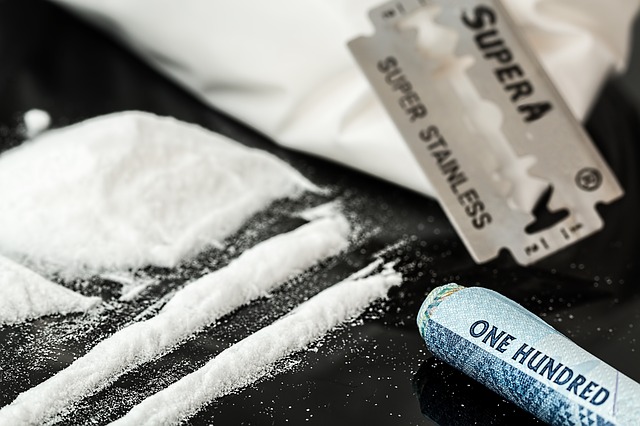News
SC orders adoption of new plea bargaining rules for drug cases

The Supreme Court (SC) En Banc has ordered all trial courts to adopt a new plea bargaining framework in illegal drug cases that would allow an accused to plead guilty to a lesser offense for a lighter penalty. (Pixabay photo)
MANILA — The Supreme Court (SC) En Banc has ordered all trial courts to adopt a new plea bargaining framework in illegal drug cases that would allow an accused to plead guilty to a lesser offense for a lighter penalty.
In an eight-page notice dated May 3, the High Court directed Court Administrator Jose Midas Marquez to issue a circular to all trial courts in the country for the implementation of the plea bargaining policy.
The plea bargaining framework was adopted by the SC as an offshoot of its Aug. 15, 2017 decision that declared unconstitutional Section 23 of Republic Act No. 9165 (Comprehensive Dangerous Drugs Act of 2002) for being contrary to the rule-making authority of the High Tribunal under the Constitution.
Section 23 of RA 9165 provides that any person charged under the law, regardless of the imposable penalty, should be denied plea bargaining or pleading guilty to a lesser offense.
The SC ruling was handed down on the case filed by Salvador Estipona against Legaspi City regional trial court Judge Frank Lobrigo.
Case records showed that Estipona was allegedly caught in possession of .084 grams of methamphetamine hydrochloride or shabu. He was charged with violation of Section 11, Article 2 of RA 9165 before Judge Lobrigo.
Assisted by the Public Attorney’s Office, Estipona challenged before the SC the judge’s denial of his motion for plea bargaining. The SC ruled in Estipona’s favor.
Citing previous decisions, the SC said its power “to promulgate rules for pleading, practice, and procedure is exclusive to the Court and is not a shared power” and thus, the High Court “is the only entity that may regulate such procedure.”
Associate Justice Diosdado M. Peralta, who wrote the Estipona ruling, met with the officers of the Philippine Judges Association, which submitted the draft on the plea bargaining framework.
During its full court session last April 10, the framework was approved by the SC en banc.
The SC said that plea bargaining is not allowed in drugs cases where the penalty is life imprisonment or death.
Plea bargaining is also not allowed under Section 5 of RA 9165 on the sale, trading, administration, dispensation, delivery, distribution and transportation of all kinds of dangerous drugs, the SC noted.
Under the plea bargaining framework, an accused charged with violation of Section 11 of RA 9165 on possession of dangerous drugs where the quantity is less than 5 grams (in case of shabu, opium, morphine, heroin and cocaine, and less than 300 grams in case of marijuana) with a penalty of 12 years and one day to 20 years in prison and a fine ranging from PHP300,000 to PHP400,000, he or she can plea bargain to a violation of Section 12 on possession of equipment, instrument, apparatus, etc. with a penalty of six months and one day to four years in prison and a fine ranging from PHP10,000 to PHP50,000.
In this case, the SC said “the court is given the discretion to impose a minimum period and a maximum period to be taken from the range of penalty provided by law.”
It said “a straight penalty within the range of six months and one day to one year may likewise be imposed.”
The SC also said, “In all instances, whether or not the maximum period of the penalty is already served, drug dependency test shall be required. If accused admits drug use, or denies it but is found positive after drug dependency test, he/she shall undergo treatment rehabilitation for a period of not less than six month.
“Said period shall be credited to his/her penalty and the period of his/her after-care and follow-up program if penalty is still unserved. If accused is found negative for drug use/dependency, he/she will be released on time served, otherwise, he/she will serve his sentence in jail minus the counseling period at rehabilitation center.
“However, if accused applies for probation in offenses punishable under RA 9165, other than for illegal drug trafficking or pushing under Section 5 in relation to Section 24 thereof, then the law on probation shall apply.”
Also under Section 11, if the accused is charged with possession of shabu, opium, morphine, heroin, and cocaine of more than 5 grams but not exceeding 10 grams, or with marijuana of 300 grams but not more than 500 grams, he or she can plea bargain to violation of Section 11 (less than 5 grams in case of shabu, etc. and less than 300 grams of marijuana) to lower the penalty from 20 years to life imprisonment and fine ranging from PHP400,000 to PHP500,000, to 12 years and one day to 20 years prison term and fine ranging from PHP300,000 to PHP400,000.
If an accused is charged with possession of equipment, apparatus and other paraphernalia for dangerous drugs under Section 12, he or she can plea bargain to violation of Section 15 or use of dangerous drugs to lessen the penalty from six months and one day to four years in prison and fine from PHP10,000 to PHP50,000, to six months treatment and rehabilitation if he or she admits drug use or is found positive after drug use/dependency test.
For violation of Section 14 for possession of equipment, apparatus and other paraphernalia for dangerous drugs during parties, social gatherings or meeting, he or she can plea bargain to violation of Section 15 on use of dangerous drugs to lower the penalty from a maximum or four months in prison to six months of treatment and rehabilitation.





















